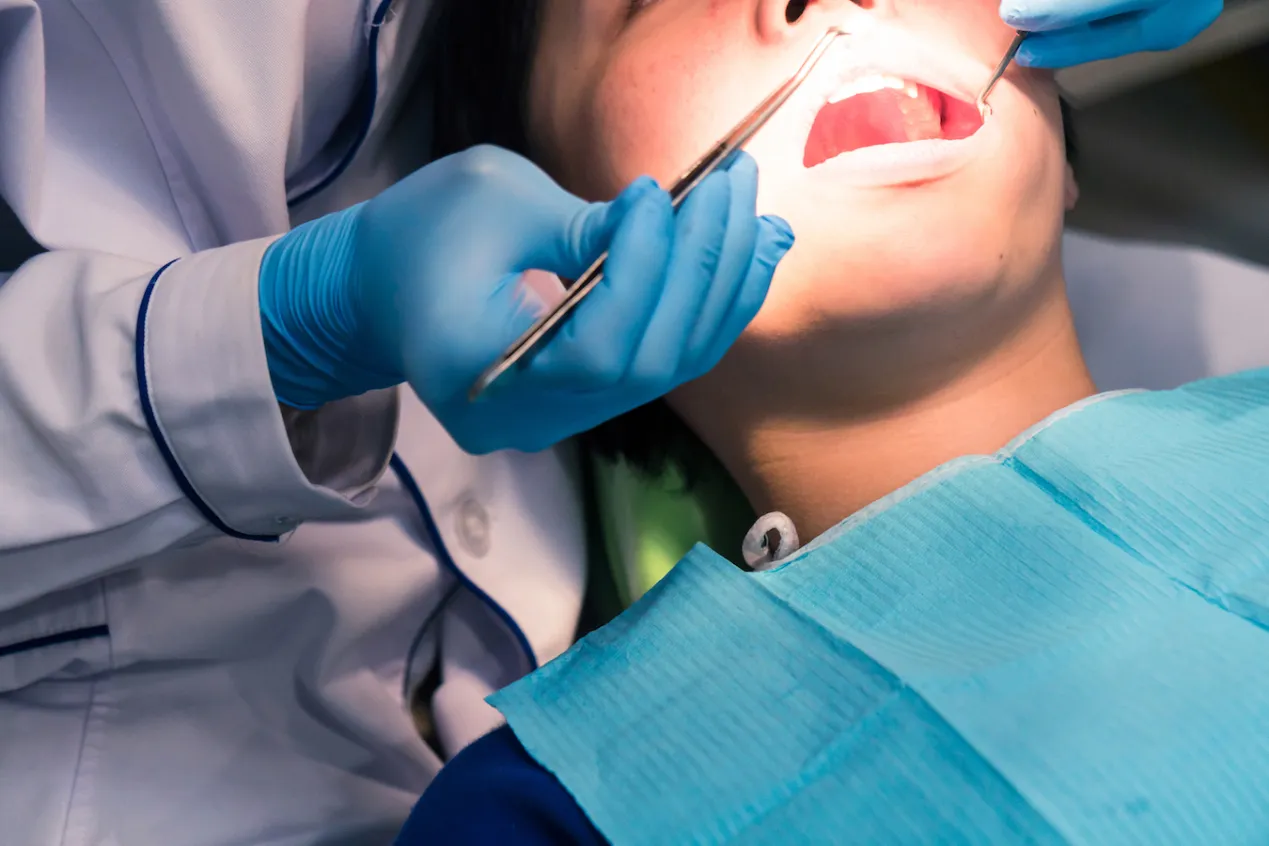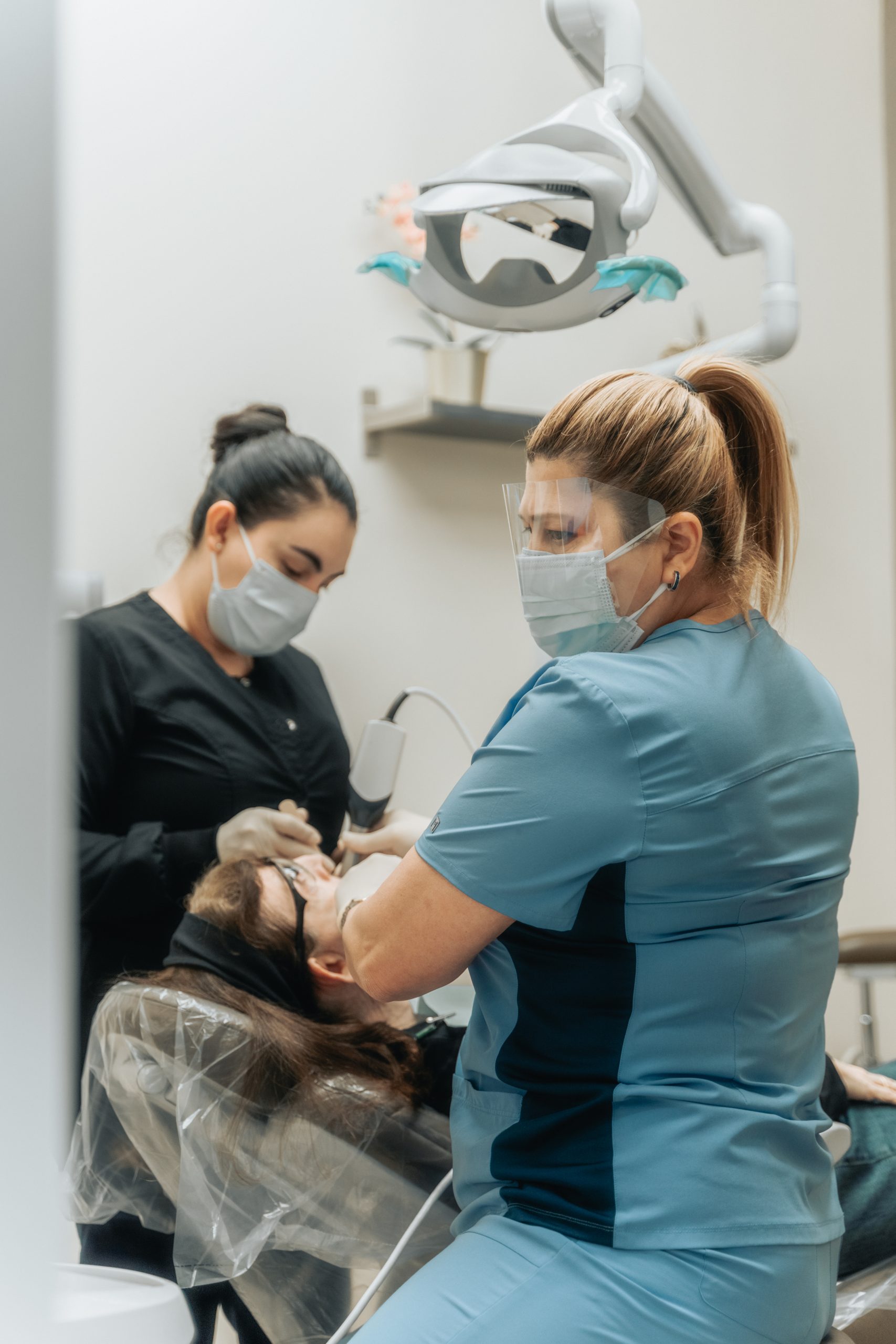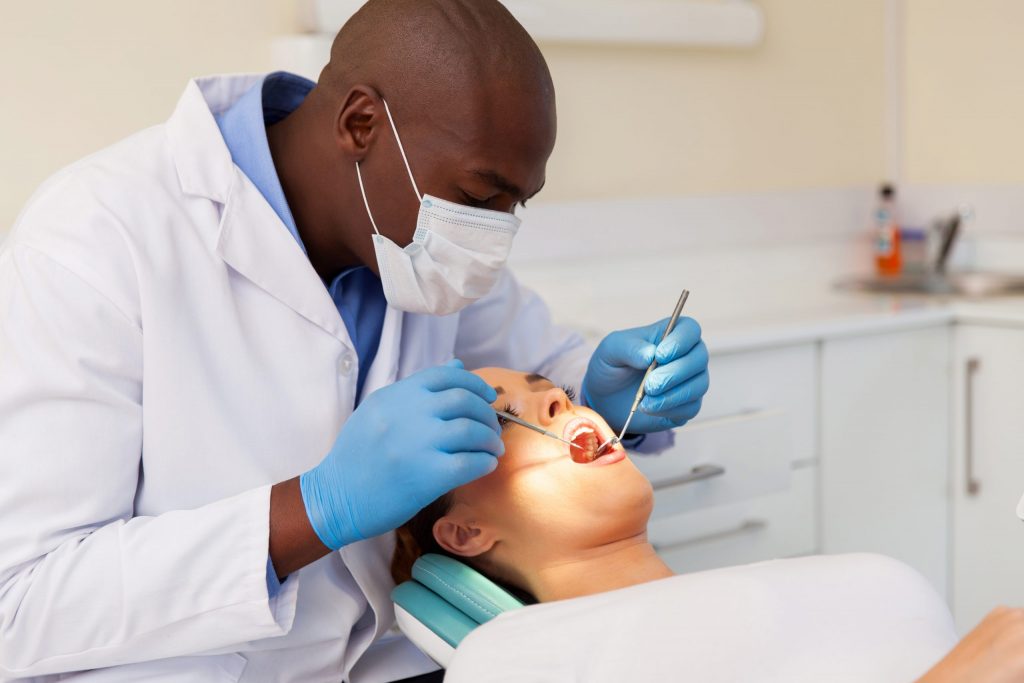Understanding Exactly How Dentists Deal With Typical Oral Wellness Issues
Dental professionals use a complex method to handle usual oral health problems, making use of analysis techniques such as visual assessments and X-rays to identify cavities, gum illness, and tooth level of sensitivity. Therapy approaches range from specialist cleansings to restorative procedures, all customized to private needs. Highlighting preventative treatment, dentists also offer customized recommendations on keeping dental health. This all natural strategy not just addresses prompt problems yet additionally intends to minimize lasting troubles. Yet exactly how precisely do these techniques assemble to guarantee ideal oral health? The next actions in recognizing these methods are both vital and elaborate.
Detecting Tooth Cavities
Detecting tooth cavities entails a precise exam of the teeth, using both aesthetic evaluations and progressed diagnostic devices. Dental experts begin with a detailed visual analysis, looking for staining, noticeable holes, or other indicators of decay on tooth surface areas. They might use a dental mirror and traveler to spot soft places or locations that may suggest demineralization.
Along with visual assessments, dental practitioners frequently use innovative diagnostic tools to improve precision. Digital radiographs, or X-rays, are basic in identifying tooth cavities that are not noticeable to the nude eye, such as those in between teeth or beneath existing dental job. These photos give comprehensive insights right into the degree and area of degeneration, allowing for accurate treatment planning.
Some professionals additionally make use of laser fluorescence tools, which spot changes in tooth structure by determining exactly how much light is shown back from the tooth surface area. This technique can recognize early-stage dental caries that could not yet be noticeable or observable via traditional means. Regular oral exams and the usage of these analysis strategies are critical in capturing tooth cavities early, consequently stopping more degeneration and protecting general oral health.
Treating Gum Tissue Condition
While detecting cavities is a critical facet of dental health and wellness, it is equally important to resolve gum tissue illness, another prevalent oral problem. Gum tissue condition, or gum condition, is mostly triggered by the accumulation of plaque, a sticky movie of germs on the teeth and gums. If without treatment, it can advance from gingivitis, a mild kind, to periodontitis, a much more severe condition that can lead to tooth loss and systemic wellness problems.
The first treatment for gum illness frequently entails non-surgical techniques. Scaling and root planing, a deep cleansing procedure, is frequently employed to get rid of plaque and tartar from below the gumline. Anti-bacterial medications might also be suggested to reduce microbial load.
For sophisticated cases, surgical treatments may be essential. Procedures such as flap surgical procedure, where gums are raised back to remove tartar deposits, or bone and cells grafts, which intend to regrow broken areas, are utilized to recover oral health and wellness.
Recurring maintenance is vital in managing periodontal condition. Dentists suggest normal dental examinations, specialist cleanings, and persistent home treatment techniques, including brushing, flossing, and utilizing disinfectant mouth wash. Early detection and consistent administration are vital to avoid the progression of this typical yet significant dental condition.
Handling Foul Breath
Foul breath, also referred to as halitosis, often impacts people and can be a resource of substantial social pain and anxiety. Dental professionals play a vital duty in detecting and handling this problem by determining underlying reasons and suggesting appropriate treatments.
The etiology of halitosis is multifactorial, with poor dental health being a key factor. Microbial plaque buildup on the teeth and tongue, food particles, and completely dry mouth are usual wrongdoers. eugene dentist. Dentists often start monitoring by suggesting individuals on efficient oral hygiene practices, consisting of normal brushing, flossing, and making use of antiseptic mouth washes

In addition, way of living and dietary factors, such as tobacco use and usage of specific foods, might aggravate foul-smelling breath. Dentists offer individualized recommendations on nutritional alterations and cessation of hazardous habits. Collaboration with other doctor might likewise be called for if systemic conditions, such as intestinal conditions or breathing infections, are suspected factors to bad breath.
Resolving Tooth Level Of Sensitivity
Attending to oral health extends past taking care of poor breath to include conditions like tooth level of sensitivity, which can dramatically influence day-to-day live. Tooth sensitivity, characterized by pain or discomfort in action to stimuli such as warm, cool, wonderful, or acidic foods and beverages, usually arises from subjected dentin or receding gum tissues. Dental practitioners utilize a multifaceted approach to minimize this condition and manage.
First, a thorough exam is necessary to identify the underlying reason, which may vary from enamel erosion to gingival economic crisis. Based upon the diagnosis, therapy can involve desensitizing representatives like fluoride gels or varnishes, which strengthen tooth enamel and minimize sensitivity. In addition, dental professionals might recommend particularly formulated tooth paste for sensitive teeth, consisting of compounds like potassium nitrate or stannous fluoride to obstruct discomfort signals.

Preventive Dental Care
Recognizing the value of precautionary dental care is critical for keeping lasting dental health and wellness. Preventive treatment includes an array of methods focused on stopping the onset of dental diseases and problems. Regular oral exams, normally recommended every 6 months, are fundamental to this technique. During these sees, dentists do extensive cleansings, removing plaque and tartar that are past the reach of regular brushing and flossing.
Furthermore, precautionary treatment consists of the application of fluoride treatments and dental sealants, which give an extra layer of protection against tooth degeneration. Fluoride reinforces the enamel, making it extra resistant to acid attacks, while sealants function as an obstacle on the chewing surface areas of the back teeth, where decay frequently starts.
Education and learning is a considerable component of preventative dental treatment. Hygienists and dental professionals inform patients on appropriate brushing and flossing methods, the importance of a balanced diet, and the effect of way of living choices such as smoking and sugar intake on dental read this article health and wellness.
Verdict

Dentists utilize a complex approach to handle usual dental health problems, making use of analysis techniques such as visual assessments and X-rays to spot tooth cavities, gum tissue condition, and tooth sensitivity.While finding dental caries is a crucial element of dental wellness, it is just as important to address periodontal illness, one more widespread oral concern. dentist in eugene oregon. Dental experts might do a thorough dental exam to identify potential issues such as gum condition, oral decays, or dental infections. By resolving tooth level of sensitivity adequately, dental practitioners aid people attain better convenience and preserve ideal oral health
Emphasizing preventative treatment and individualized recommendations, dental professionals play a vital role in keeping optimum dental health and wellness and reducing lifestyle-related dental troubles.
Comments on “Why You Must Select a Neighborhood Dentist Eugene for Personalized Treatment”